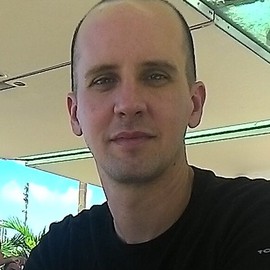
April 11, 2024
Computer Science Professor Marc Niethammer received a grant from the National Institutes of Health (NIH) to develop a new framework that combines imaging and genetics to advance research for the treatment of osteoarthritis. The grant will provide $3,326,488 over five years.
The project, “A Comprehensive Imaging Genetics Framework for Osteoarthritis Research,” aims to identify early indicators and genetic targets for treatment by integrating deep learning with genome-wide association studies. The project is a collaboration with fellow principal investigator Professor Hongtu Zhu of the Department of Biostatistics, who has an adjunct appointment in the Department of Computer Science.
Osteoarthritis is the most prevalent form of arthritis, affecting millions nationwide. Unfortunately, there are currently no drugs to treat the disease, and treatment focuses on minimizing discomfort and, when necessary, totally replacing affected joints. Focusing on osteoarthritis in the knee, the research will analyze data from over 100,000 patients across a variety of datasets, utilizing diverse imaging types, including DXA (bone density) scans, radiographs, and 3D MRIs, to extract biomarkers that indicate disease progression. Niethammer hopes to identify specific genes associated with early signs of osteoarthritis as promising targets for future drug development.
“By merging advanced image biomarkers with genome-wide association studies, we’re poised to uncover the genetic roots of early-stage osteoarthritis. This breakthrough could pave the way for novel treatments and interventions for OA and serve as a blueprint that can be adapted to study and treat a wide range of diseases,” explains Niethammer.
Utilizing more comprehensive deep learning approaches than previously applied to knee osteoarthritis scans, Niethammer will be able to identify more complex image biomarkers than before, in particular, focusing on image biomarkers that may be indicative of early disease progression and therefore could help identify genes involved early on in the osteoarthritis disease process. The project aims to produce open-source analytical tools and software, enhancing research capabilities and accessibility for the broader scientific community.
Niethammer leads the UNC Biomedical Image Analysis Group (UNC-biag), which undertakes research at the intersection of image analysis (including computer vision and medical image computing), machine learning, and data science. His interdisciplinary research is largely motivated by solving medical problems.
More information about the project can be found on the NIH website and the UNC-biag website.
